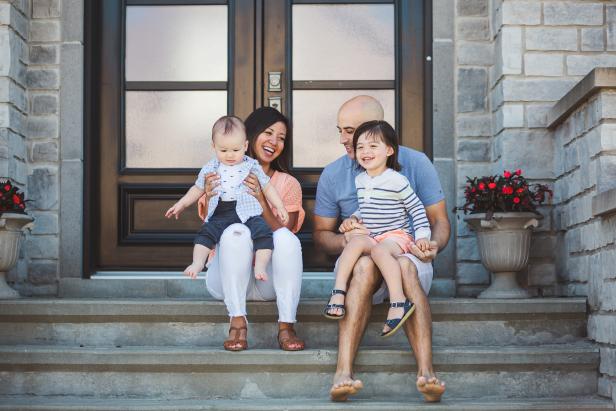Find Out If You Should Rent or Sell Your Starter Home
Is renting your home the right choice when upgrading to a bigger house? Or is selling your home a better option? Here’s what to consider once you’re ready to move on.
This article was originally published on Capital One’s BrandVoice
Sponsor content courtesy of Capital One

Carolina Hanna
When you’re moving out of your starter house to a bigger one, selling your home might seem like the obvious thing to do. But have you considered renting it instead?
Either way, you have a big decision to make, and it’s important to look at financial factors and other practical concerns when deciding to sell or rent. Here are a few things to think about:
How Can You Make Money?
Do a financial workup and see what your best option is moneywise. Determine what your potential profit could be if you decide to sell and include things like capital gains tax, seller’s fees and the remaining mortgage loan balance. If your profit is minimal or negative, you may want to hold onto your house a little longer.
Compare this with how much profit you could make from renting your home. Look at nearby rentals to see how much you can charge. Is it more than your monthly mortgage payment? Also, don’t overlook any additional expenses that could come up, like insurance, repairs, taxes and other fees. The house could also sit empty during its listing and between renters.
Is My Home Ready to Sell?
You’ll want to keep an eye on the real estate market when selling your home, which like anything else, ebbs and flows. This will help you determine if it’s a good time to sell based on demand for similar houses in your area.
Josh Romano is the founder and CEO of Cobblestone Development Group, which renovates, designs and builds custom homes in the Richmond, Virginia area.
Romano recommends speaking with a local real estate professional to help you determine how the market is behaving, but you can also use any major online real estate databases to gauge home prices in your area. You’ll get a better grasp on the competition when renting or selling your home and at what price you could potentially list it.
Romano also said you can even talk to people in your neighborhood or go to some open houses for more information. And you should be upfront with people about what you’re doing, which could lead to helpful tips.
You also might have to make improvements to your house to be more attractive to buyers, such as replacing the appliances or redoing the bathrooms. A recent influx of cash, like your tax refund, could help you keep costs down.
“Any time you’re getting a house ready for sale, you’re putting your best foot forward,” said Romano. “Sometimes it’s just decluttering or a new coat of paint to get a better return on investment.”
If you don’t want to put the cash down for home improvement, renting could be a good option. Potential renters may not mind older appliances and dated floor layouts since they’re not buying the property. You could make a little profit or pay down the mortgage if you decide to rent and then wait on the improvements.
Do You Need the Profit for Your New Home?
Do you need the money you make from the sale of your starter home for the down payment of your new home? If yes, you’ll likely need to sell. If you want to rent, another option could be using a home equity loan or refinancing your mortgage to use the proceeds as your down payment.
Do You Want to Be a Landlord?
Some people like the thought of providing a service and a nice home to someone. You could help solve problems and make sure everything’s in working order and going smoothly. It’s like managing a one-room hotel. But it’s not for everyone.
“Landlord is not for the faint of heart,” said Romano. “You are hands-on; you are involved. There’s a little bit of a learning curve and knowledge you need to invest in.”
You have to deal with people and their issues when it comes to managing a home rental. Even the world’s greatest tenants will make a request every once in a while, whether they need a sink unclogged or an appliance replaced.
“I’ve carried [refrigerators] up flights of stairs,” Romano said. “You are getting those phone calls at 11 o’clock [at night], and you’re telling your wife, ‘I’ll be back,’ but you’re not. You’re there until 3 a.m.”
If being a landlord doesn’t sound like it’s right for you, consider hiring a property manager. They can handle your tenants as well as rent the property. They’ll make sure your tenants pay on time and maintain the house properly. Remember to include their payment when calculating the expenses of renting.
Renting or selling your starter home is a big decision, but either choice can bring a number of benefits. After weighing your options, you’ll be able to figure out what’s right for you and your family.






